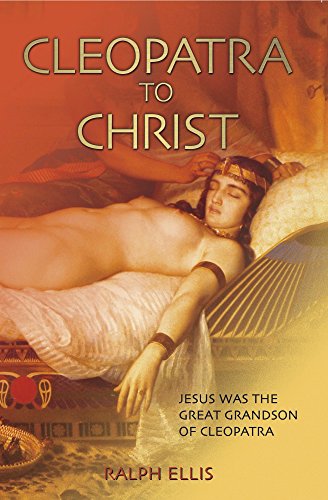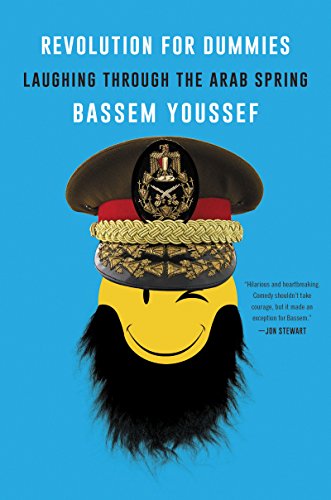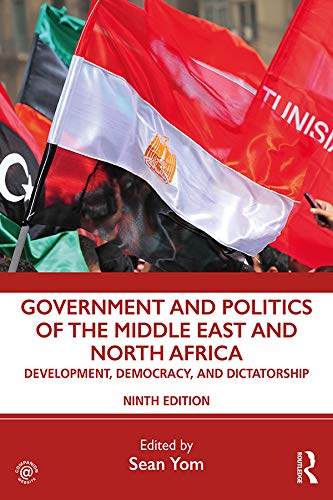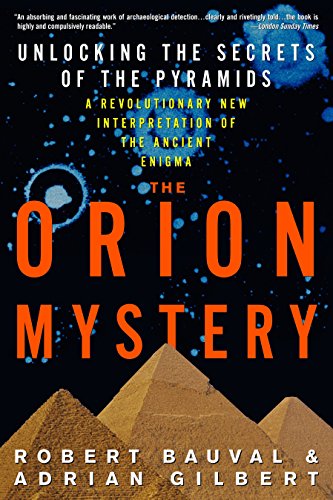The best
Egyptian History books:
Reddit reviews
From 3.5 billion Reddit comments
The best of Egyptian History books by number of unique Reddit comments:
Top Reddit reviews mentioning Egyptian History books:
Read The Bible Unearthed. There isn't even any archaeological evidence for the genocide of Canaan or the Exodus. So now ya get to have Christians not only argue that the genocide happened because the Bible said so, but that it was morally justified. Fun!
According to secular historians?
Yeah...not a chance.
The consensus is that pre-Exile, the Bible is entirely unreliable. Post-Exile it has a lot of fact, but it's heavily propagandized.
Here's a great book to read on the matter: https://www.amazon.com/Bible-Unearthed-Archaeologys-Vision-Ancient/dp/0684869136
If you're interested in HOW the bible was put together, by who, and when, the The Bible Unearthed is a great resource. It uses known history, archaeology, etc. not religious views. It's well sourced, and interesting.
Jimmy Carter, the only president to negotiate a lasting peace in the Mideast, wrote a book called Palestine: Peace Not Apartheid.
We have massive amounts of evidence which contradicts the Bible's story. It's not just absence of evidence.
You should read this book. It gives the consensus archaeological view of the history of the early Bible. It's not quite up to date, but still very good. https://www.amazon.com/Bible-Unearthed-Archaeologys-Vision-Ancient/dp/0684869136
All of the facts in this video and more are in The Bible Unearthed by Israel Finkelstein and Neil Silberman and if you read the book you will get more facts more efficiently (Finkelstein is interviewed on camera in the video). Nevertheless the video definitely adds. The CAD representations of the Temple Mount are the best I have seen. Also I have not before seen video of the Samaritans doing blood sacrifice by the ancient recipe and it makes for a whomping visual impact.
The life is in the blood. Yeah we all learned that part a long time ago but a picture can be worth a thousand words.
https://www.amazon.com/History-Jews-Paul-Johnson/dp/0060915331
Here's a good book for you, and one that was written with modern research. I've actually read this one believe it or not!
A couple of months ago I read The Crusades Through Arab Eyes by Amin Maalouf.
I liked it a lot, and it does exactly what the title promises: using almost entirely non-European sources, it tells the story of the Crusades from the perspectives of the Arabs (and Turks and Mamluks etc etc) who got invaded. As a history of the Crusades it's incomplete because it doesn't tell the whole story, but it's not supposed to. It's supposed to give you a picture of the situation in the Middle East for the two hundred years or so that the Crusades lasted, and doesn't really care too much about European politics, other than to explain why things happened in Syria and Anatolia and Egypt the way that they did.
I do not know where you get this idea from of no evidence. It is scarce but it does exist,.checkout this interesting book.
https://www.amazon.com/Israel-Egypt-Evidence-Authenticity-Tradition/dp/019513088X
In adulthood, Moses is portrayed as leaving the comfort of the court to see the plight of his people (Exod. 2:11). As a Hebrew attached to the court, Moses may have been acting in some official capacity. Upon seeing an Egyptian official beating a Hebrew, Moses retaliated, killing the Egyptian, which led him to flee from Pharaoh's anger (Exod. 2:12-15). Moses' flight took him to the land of Midian, generally thought to be in northern Arabia, on the east side of the Gulf of Aqaba. One reason for not stopping in Sinai to hide out is that throughout the New Kingdom the Serabit el-Khadim area was regularly frequented by Egyptian mining expeditions.
~James K. Hoffmeier, Israel in Egypt: The Evidence for the Authenticity of the Exodus Tradition
https://www.amazon.com/Israel-Egypt-Evidence-Authenticity-Tradition/dp/019513088X
It's not
​
The Bible Unearthed: Archaeology's New Vision of Ancient Israel and the Origin of Its Sacred Texts, a book published in 2001, discusses the archaeology of Israel and its relationship to the origins and content of the Hebrew Bible. The authors are Israel Finkelstein, Professor of Archaeology at Tel Aviv University, and Neil Asher Silberman, an archaeologist, historian and contributing editor to Archaeology Magazine.
There's no archeological evidence for Hebrews ever being slaves in Egypt, we're all literally the descendants of cannanites who were already in Israel.
I'm not trying to attack faith here, if you believe in the Bible as fact, then just look there or resources around the bible.
It was a great read! A lot of archeological work was ironically done by the Church in an attempt to prove that the bible was "true".
By the way there definitely evidence of Israelites being in Egypt
https://www.amazon.com/Israel-Egypt-Evidence-Authenticity-Tradition/dp/019513088X
This book is pretty amazing
The archaeological record clearly shows that at least some of these peoples were of Semitic origin, coming from Canaan specifically and the Levant in general.
If so, then perhaps this: https://www.amazon.com/Bible-Unearthed-Archaeologys-Vision-Ancient-ebook/dp/B000FBJG86/ref=mp_s_a_1_14?crid=3EV6TY3VMDG7P&keywords=bible+origins&qid=1640381501&sprefix=bible+origi%2Caps%2C78&sr=8-14
Defining the baseline to be used in the thesis might be very intriguing.
What is meant, exactly, by the word, “demon”? Or, is it more accurate to say, “diamon”? Personally, think this difference is at the root of the comparison and to deploy the Bible as a standard without digging into its dirt (pun) is to avoid the heavy lifting that should be done.
I'm a history noob. This book has been great:
The History of the Ancient World: From the Earliest Accounts to the Fall of Rome https://smile.amazon.com/dp/039305974X/ref=cm_sw_r_apan_glt_fabc_C5PJMK0KD405JAP2AEHX?_encoding=UTF8&psc=1
For the history part I would recommend a one-volume history of the Jews, of which several are available, such as Paul Johnson, A History of the Jews (1988), an easy read and a best-seller for a time: https://www.amazon.com/History-Jews-Paul-Johnson/dp/0060915331
You are right, there is antisemitism found in Hadith.
But here is a source for you, without any antisemitism.
https://www.amazon.com/Palestine-Peace-Apartheid-Jimmy-Carter/dp/0743285034
The Bible Unearthed: Archaeology's New Vision of Ancient Israel and the Origin of Sacred Texts by Israel Finkelstein is a must-read for anyone wanting to contrast "Biblical Archaology" with actual archaeology.
Jihad is consistent with the many Arabic influences in the book... but yeah, I get that term has a negative connotation in much of the Western world
As a noteworthy paradigm-shift, it's interesting that the term crusade has an equally negative connotation in much of the Muslim world. Excellent book on the topic here
Finkelstein's The Bible Unearthed is a good read: https://www.amazon.com/Bible-Unearthed-Archaeologys-Vision-Ancient/dp/0684869136
He's an archaeologist who is regarded by some as a biblical minimalist, but according to him, he is more of a centrist, as opposed to a biblical maximalist such as WF Albright or Yigael Yadin.
It's called "The Bible Unearthed: Archaeology's New Vision of Ancient Israel and the Origin of Sacred Texts"
https://www.amazon.com.au/Bible-Unearthed-Archaeologys-Vision-Ancient-ebook/dp/B000FBJG86
It's an extremely well received book in academia.
I've been reading The Bible Unearthed. Written by two Jewish archaeologists, it provides what I consider to be a compelling, realistic analysis of ancient Israel's formation and codification of its holy texts.
Hey friend,
Almost two years ago to the week, I had a sudden shelf collapse. I was your typical faithful Utah born and raised Mormon raising a typical Mormon family of my own. For me it was the Book of Abraham. I remember driving to work the Monday after the Saturday I told my wife I don't believe the Church is true anymore. I felt like I was seeing the world for the first time. Like a filter had been lifted from my eyes.
So much of the Bible stories just aren't historical. After my shelf collapsed I started looking at the Bible and asking questions. The things I've learned are so different than what I thought was factual my whole life. I haven't made it all the way through the book below yet but it is really good if you are interested in an academic view of the bible stories.
Kinda hard for Moses and Abraham to write scrolls when they didn't exist (at least not in the Biblical story sense). Adam and Eve, Abraham, Moses, Noah, David, Solomon, Joseph of Egypt - all probably tribal myths or something.
The new testament has plenty of issues also.
Hope you continue to share you journey with us.
Best to you.
Edit: I had powerful spiritual experiences as well. That was the last part of me reconciling beliefs with my new-found knowledge. I believe those experiences are real, just more chemical/physical than spiritual. I interpret them differently now is all.
The Canaanites weren't given a chance to change their ways. Yahweh choose the Israelites as his people, and gave his laws to them. How were the Canaanites supposed to change their ways when they hadn't been told to? It's like beating a child for breaking a rule you never told them.
Also, archaeological evidence shows that the Israelites were Canaanites; there was a gradual transition from Canaanite culture to polytheistic Israelite culture, and eventually monotheistic Judahite culture.
Finally, Moloch wasn't a Canaanite god. He was Phoenician, and the authors of the Pentateuch didn't know the difference; this is actually excellent evidence that the books were written much later than has been traditionally thought, because the writers couldn't distinguish between the two groups anymore. There is absolutely no evidence whatsoever that Canaanites performed human sacrifice, and yet you're actually trying to justify the wholesale slaughter of an entire people, including children. Why did Yahweh have the children killed if it was about right practices? Surely they could have been taught proper religious practices. The reason is because that's not what it was about; it was ethnic cleansing, the killing was supposed to remove all the non-Israelite blood from the area to show explicitly that the Israelites were distinct from the Canaanites, that their religious practices were unique, and that they were untainted.
You're actually trying to justify a genocide. Stop for a moment and think carefully about whether you're the kind of person who thinks that genocide is acceptable under some circumstances, and then tell me where you get your morals.
What, an article detailing moderatism reducing religious extremism? Maajid Nawaz is a good example,his book explains it in very extensive detail, or here.
As of "People can do evil shit while thinking they're being good", what does that have to do with anything we're discussing? Yes, people cause harm for religious, political, moral or social reasons while thinking they're doing good. That doesn't mean all political ideologies are harmful. Why would it mean the same of religion?
I wear masonic cuff links as a very subtle hint. I also have some socks with glass beer mugs on them I have worn. I also usually carry a copy of The Bible Unearthed or something like that and read it during sacrament meeting.
It's just a videogame. Also Assassins didn't work the way you see in the videogame. The name come from Hashish, the drug. They used to get heavily drugged and perform assassinations on Friday outside the mosquee, to spread fear. But they were always suicidal missions.
Templars (more likely crusaders) often paid them to perform assassinations, but they weren't natural enemies/friends.
If you are interested in what happened in the middle east during the Crusade period, i highly reccomend this book:
https://www.amazon.it/Crusades-Through-Arab-Eyes/dp/0805208984
In here you can find a VERY cool story between crusaders and assassins, when they tried to siege the secret assassin base.
All the rest is just pure imagination.
Templars are overrated, they were just a commercial company who sponsored and organized crusades (like the administration and finance office in a business). The most interesting part is all the treasures they collected that were seized by Filippo il Bello (Philip the handsome? idk the translation) because they were becoming too powerful and there were no more crusades to do.
Sorry for broken english, not my language and i can't be bothered to properly translate
I am keen to learn how your research progresses. I have always loved the Joseph narrative in Genesis, but I have never delved into the historical/archeological connections to Egypt.
Have you attempted to explore any archeological references to Potiphar or his wife (later referenced as Zulaika)? Also, finding Asenath would be a success. She was Joseph's Egyptian bride.
James Hoffmeier has a great scholarly book on the Hebrew Bible and Egypt. The book came out in 1999. Here is a link to Amazon, but it is available through Oxford online:
Israel in Egypt: Evidence for the Authenticity of the Exodus Tradition
<em>Radical</em> is a book by a muslim man who was beaten by neo-Nazis and later jailed as a political prisoner in Egypt. Really interesting life and perspective.
Big fan The Bible Unearthed for a great understanding of the development of the Hebrew Bible from a historical and archaeological perspective.
The Bible Unearthed is a great resource.
Also this Bible is a Geneva edition so it’s not sanitized. If your into US history it comes with a lot of cool stuff
sms:&body=Check%20this%20out%3A%201599%20Geneva%20Bible%3A%20Patriot's%20Edition%20Tolle%20Lege%20Press%20https%3A%2F%2Fwww.amazon.com%2Fdp%2F1450742491%2Fref%3Dcm_sw_r_sms_awdb_t1_BXcDCbQ6QZCAR




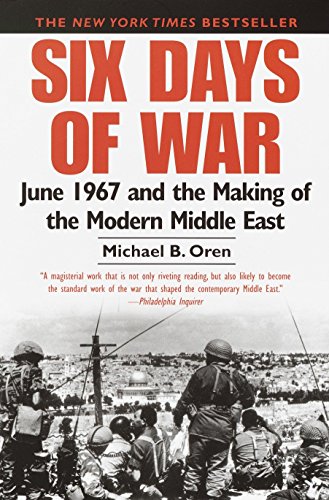








































![The Awesome Egyptians (Horrible Histories) (Horrible Histories) (Horrible Histories) [Paperback] [Jan 01, 2007] Deary, Terry](https://m.media-amazon.com/images/I/51l5X1aGgiL._SL500_.jpg)































